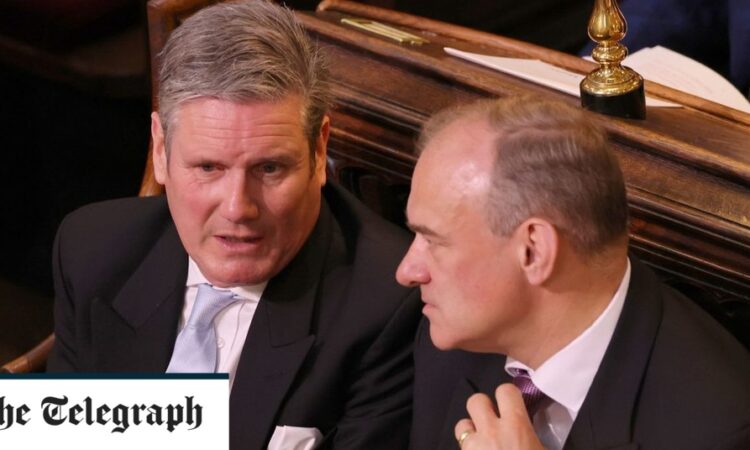
It is true that we cannot read too much into local election outcomes. When voters go to the polls in 18 months’ time, they will do so in far greater numbers, with perhaps different intentions. Yet neither party is fully ruling out a Lib-Lab pact at some point in 2024. Both sides have begun dropping hints that they could be open to working together in government.
Setting aside the implications for devolution, Brexit or our voting system, this could bring disastrous consequences for the British economy.
Already, we are set for the highest tax burden in 70 years. Firms are making noises about leaving if corporate taxes are not reduced. Productivity has been stagnant for so long that politicians seem to accept it as an immutable characteristic of our economy. Inflation remains stubbornly above 10pc. Living standards are falling at the fastest rate in two generations, and growth is struggling to top 1pc a year.
Many voters will find themselves wondering how much worse the situation can get. But a Lib-Lab coalition would surely accelerate our decline. For a start, the party appears to have embraced Nimbyism with such zeal that Michael Gove is beginning to look like Bob the Builder.
A brief glance at local campaigning literature indicated firm opposition towards construction. Often working alongside a Green Party that favours immigration and rent controls but rejects housebuilding, the Lib Dems have exploited opposition to new developments across the prosperous suburbs where we desperately need new homes.
Britain needs leaders bold enough to admit that if we keep up current rates of immigration, we need to build more, rather than ones who pretend they can have their cake and eat it, too.
Labour in office might be willing to take a more realistic approach. In coalition with the Lib Dems, who have invested so much at the local level, they may find this impossible.
And the Liberal Democrats could pull Labour towards a more fanatical stance on climate change. While Nick Clegg’s objection to new nuclear plants was seemingly grounded in concerns over how long they would take to build, more recently the Party has claimed there is “no environmental case” for them.
The Lib Dems are firmly opposed to fracking, even as we emerge from one energy crisis and could soon lurch into the next. And they are in the vanguard of low-traffic zones, congestion charges and 15-minute cities, despite concerns from small businesses that such policies will turn high streets into ghost towns.
Ed Miliband’s climate change and Net Zero ministry would sacrifice many things at the altar of decarbonisation, but his ambitions could grow dramatically with Lib Dem juniors by his side.






